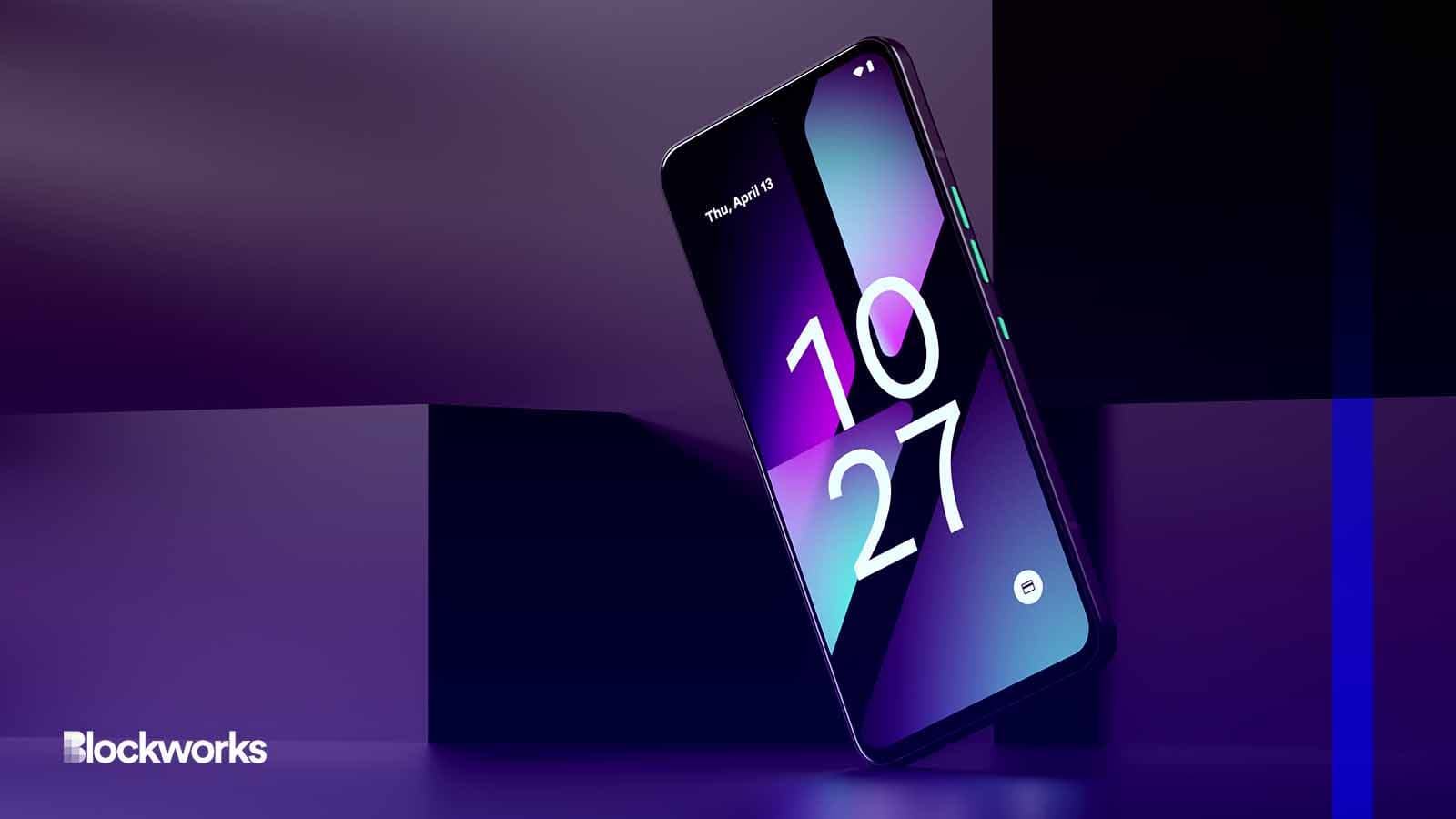Solana Saga, an Android Phone With a Crypto Twist
The Solana Saga is designed to make it more seamless to make transactions on your pocket device

Solana modified by Blockworks
Solana Mobile has introduced its first Android device — the Saga. Customers from the US, EU, UK, Canada, Switzerland, Australia and New Zealand will be able to order the phone beginning May 8.
The Solana Saga is designed to integrate the Web3 experience onto your mobile phone seamlessly.
In an interview with Blockworks, Steven Laver, the lead software engineer at Solana Mobile, notes that existing ways to engage with Web3 are still primarily through a big screen, despite mobile phones being the device we interact with most on a daily basis.
“I can’t remember the last time I went to anything but a phone…everything I do, I start with my phone, except for Web3,” Laver said.
Google and Apple app stores enforce strict rules around their payment systems, and many Web3 apps have to make compromises just to get their app in their app stores. Uniswap’s widely anticipated app was stuck in Apple app store limbo for a month before finally reaching the public Thursday.
This is where the Solana Saga steps in. A separate Solana app store sits alongside native Android apps. The mobile device is designed with two key technological elements: being useful for a Web3 audience and keeping them safe.
Security focus
Users who purchase a Solana Saga will be prompted to connect their Web3 wallets or create a new seed vault that is integrated into the phone — this is similar to having mobile pay activated on the current crop of phones.
The seed vault is connected to all dapps which are available for purchase on the Solana app store, enabling transactions to be quickly and securely signed.
“The key custody is built below the layer of the Android — so they have all Android components — and the Android OS that runs on the phone is how we surface all of this information to users, through wallets they’re already familiar with,” he said.
Saga uses the Qualcomm secure execution environment so that the custody of the wallet’s private keys can be removed from the main Android OS.
“Users should have self-custody of their assets, and they need to feel comfortable bringing those assets with them on the go, so we want to make sure you have something that is more secure than a traditional pure software-based self-custody system,” Laver said.
The is also a secure element processor built into the phone, Laver notes. This means that the seed vault is encrypted in a way that even the phone itself does not have the capability to decrypt private keys without user engagement.
“Whether that be through entering a password or through secure biometric touching the fingerprint sensor, all of that processing happens away from the Android, so if the Android was compromised, all your keys are still held securely away from the operating system,” Laver said.
Launching for Web3 enthusiasts
At launch, 16 dapps will be available for download on the Solana app store. These apps include Audius, Dialect, Jupiter Aggregator, Ledger, Magic Eden, Mango Markets, Marinade, and Squads, just to name a few.
The phone is expected to begin shipping soon after its May 8 launch.
Users will be able to claim a Saga NFT token as soon as they set up their device, and the first few users will receive a welcome pack to Solana mobile, which will include cryptocurrencies and sticker packs.
Get the news in your inbox. Explore Blockworks newsletters:
- The Breakdown: Decoding crypto and the markets. Daily.
- 0xResearch: Alpha in your inbox. Think like an analyst.






